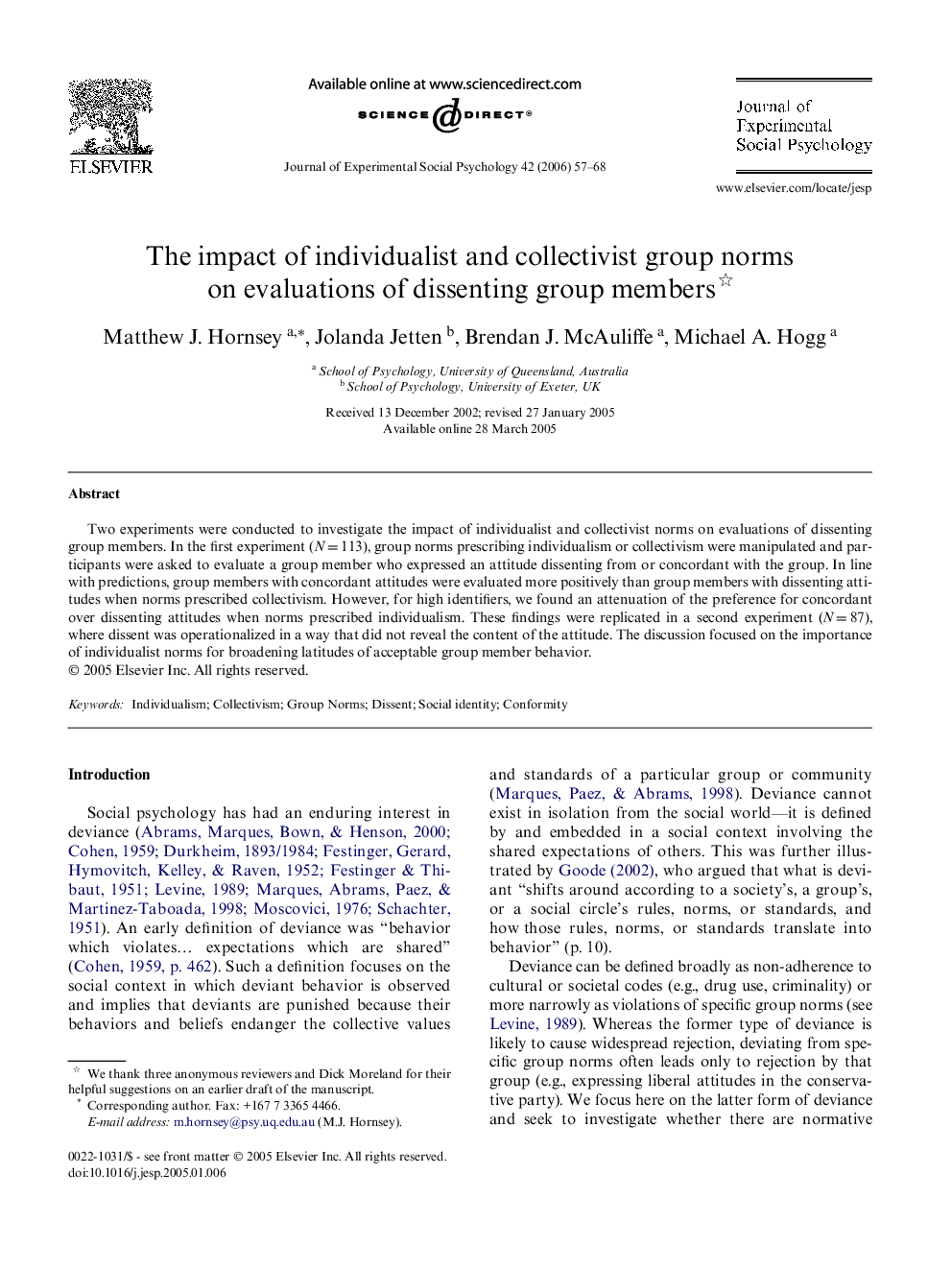| Article ID | Journal | Published Year | Pages | File Type |
|---|---|---|---|---|
| 948952 | Journal of Experimental Social Psychology | 2006 | 12 Pages |
Two experiments were conducted to investigate the impact of individualist and collectivist norms on evaluations of dissenting group members. In the first experiment (N = 113), group norms prescribing individualism or collectivism were manipulated and participants were asked to evaluate a group member who expressed an attitude dissenting from or concordant with the group. In line with predictions, group members with concordant attitudes were evaluated more positively than group members with dissenting attitudes when norms prescribed collectivism. However, for high identifiers, we found an attenuation of the preference for concordant over dissenting attitudes when norms prescribed individualism. These findings were replicated in a second experiment (N = 87), where dissent was operationalized in a way that did not reveal the content of the attitude. The discussion focused on the importance of individualist norms for broadening latitudes of acceptable group member behavior.
